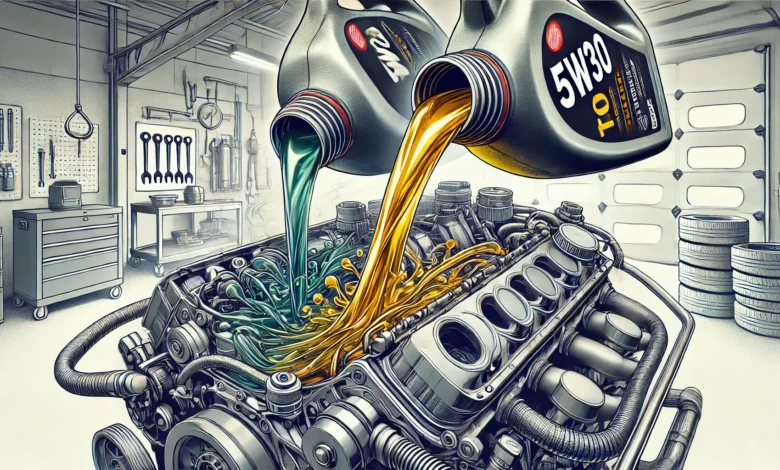What Happens If You Mix 5W30 and 10W30 Motor Oils?

When it comes to maintaining your vehicle, choosing the right motor oil is crucial. But what happens if you mix 5W30 and 10W30? Is it a big deal, or can your engine handle it? Let’s break down everything you need to know about mixing these two motor oil grades.
Understanding Motor Oil Grades
First, it’s essential to understand what the numbers and letters in motor oil grades mean. The “W” stands for “winter,” indicating the oil’s viscosity in cold temperatures. The number before the “W” (like 5 or 10) shows how the oil flows at low temperatures. The lower the number, the better the oil will perform in cold weather. The number after the “W” (like 30) represents the oil’s viscosity at high temperatures, indicating how well it protects the engine under normal operating conditions.
5W30 is designed to flow better at cold
What Happens If You Mix 5W30 and 10W30?
If you mix 5W30 and 10W30 motor oils, you’re essentially blending oils with slightly different cold-temperature viscosities. So, what happens if you mix 5W30 and 10W30?
- Minor Viscosity Change: The mixture will result in an oil with a cold-temperature viscosity somewhere between 5W and 10W. It won’t be as thin as pure 5W30 or as thick as 10W30 at low temperatures. However, at operating temperatures, the viscosity will remain close to 30, so the protection during normal driving will be similar.
- No Immediate Harm: Mixing these two oils won’t cause immediate damage to your engine. Modern engines are designed to handle slight variations in oil viscosity without significant issues. The engine will still receive adequate lubrication and protection.
- Effect on Cold Start: Depending on the proportion of each oil in the mix, you might notice a slight difference in cold starts. If there’s more 5W30 in the mix, your engine might start a bit easier in extremely cold weather. If there’s more 10W30, the oil might be slightly thicker, leading to a slower start in cold conditions.
- Long-Term Considerations: While mixing these oils once or twice isn’t likely to cause problems, consistently mixing different oil grades isn’t recommended. Over time, using a mixture that doesn’t meet your engine’s specifications could lead to reduced engine efficiency, increased wear, or even sludge buildup.
Should You Mix Motor Oils?
Although mixing 5W30 and 10W30 oils won’t cause catastrophic engine failure, it’s generally best to stick to the manufacturer’s recommended oil grade. Engine oil is formulated to provide the best protection and performance under specific conditions. Mixing different grades can dilute these benefits.
In an Emergency: If you’re in a situation where you need to top off your oil and only have a different grade available, mixing is better than running your engine low on oil. However, make sure to return to the recommended oil grade at your next oil change.
In Routine Maintenance: For routine oil changes, always use the oil grade specified in your vehicle’s owner’s manual. This ensures optimal performance, protection, and longevity for your engine.
Conclusion
Mixing 5W30 and 10W30 motor oils isn’t likely to cause significant harm, but it’s not ideal for maintaining peak engine performance. The slight difference in cold-temperature viscosity won’t make a big impact during everyday driving, but it’s best to avoid mixing oils regularly. Always aim to use the manufacturer-recommended oil grade to keep your engine running smoothly and efficiently.










